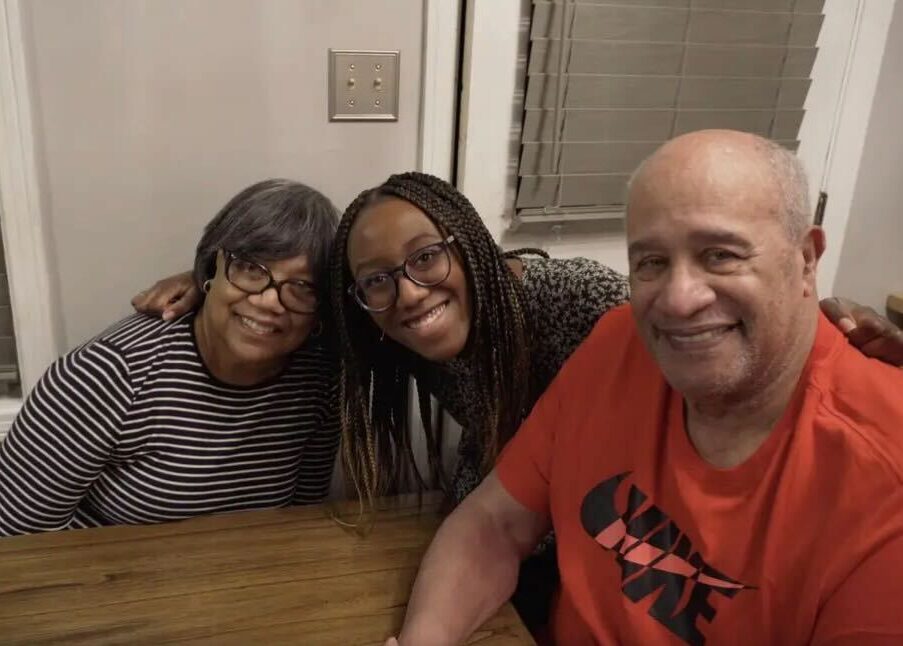Mississippi blue skies and Sunday afternoons after church were some of the brightest days for my grandmother and her cousins who grew up in Holly Springs Mississippi, just south of Memphis. Unfortunately, while days outside and an impenetrable faith community defined their childhood, so did harsh “whites only” signs, designated days to go to town, and racial terrorism in the Jim Crow South. Under the fierce heat of racial violence, my grandparents–like so many other African-American people–found ways to mobilize, love their Blackness, challenge white supremacy, and dismantle forms of systemic racism during and after the Civil Rights Movement.
The librarian from Mississippi
As a fourteen year old, my grandmother got involved in the Civil Rights Movement. She and her sisters found leadership and direction in Mississippi under the guidance of Fannie Lou Hamer, who was working to register disenfranchised Black voters at the time.
Serving in the movement furthered my grandmother’s resolve when she enrolled in Ole Miss to get her Masters years later. Few Black people, and even fewer Black women,
With a faith filled heart and inspired mind, my grandmother took her love for learning and educating others to work with her for four decades as a Memphis City Schools librarian. She was also an active member of the teacher’s union, an avid voter (living in Fannie’s legacy and her own), and candidate for school board.
In June of 2021, the library at her school was named after her.
The award winning basketball coach
Similar to my grandmother, my grandfather’s childhood–while defined by moment’s of play, laughter, dancing, and basketball–was also subject to Jim Crow. He joined the movement as a student at the HBCU, Rust College. While getting arrested in a “whites only” section of a library, participating in lunch counter sit-ins, and loving his Blackness during a time when Jim Crow told him there was nothing to love, by God’s grace, my grandfather’s heart became more resilient, hope-filled, and inspiring [to others].
Even after having children, my grandparents stayed active in the Civil Rights Movement. The night before MLK Jr. was assassinated, they heard him deliver his famous “I’ve Been to the Mountaintop” speech in Memphis. Both educators–they did not wait for change, they played a role in ushering it into the South. MLK Jr. often quoted Amos 5:24 saying “But let justice roll down like waters, and righteousness like an ever-flowing stream.” And I like to think that my grandparents were a part of the justice that rolled down, and that they are still a part of it.
In school, I was always taught that the Civil Rights Movement ended in the late 60s, but in reality, my grandparents–like many other Black folks–never stopped the work. Both spent years pouring into their communities and advocating by working as dedicated educators. They even opened their backyard to community swim lessons where my grandfather taught Black kids (and some adults too) across Memphis how to swim. My grandfather, a lifelong community servant, eventually became a state championship winning basketball coach. In 2014, the high school he coached named their gym after him, and in 2017 he was inducted into the TSSAA Hall of Fame.
The trailblazing city councilman
On the other side of my family, my grandfather was elected as the first minority city councilman in his predominantly white, Southern city and county. He worked hard to improve the lives and visibility of families in his ward, and was well regarded as an outspoken yet respected leader in the community. A hard working and dedicated man, my grandfather was also active in his local NAACP chapter and served as a committeeman for the United Auto Workers (UAW).
The faith-filled leader
Between raising seven children and working numerous jobs to help provide for their family, my grandmother loved serving in her church. Anchored by a strong faith, she uplifted, celebrated, prayed for, and supported our family with a beautiful faith. Growing up, my extended family went to my grandparents’ home on Sundays after church to enjoy soul food. My grandmother put her love into her meals, and we filled almost every room downstairs with food and laughter.
My grandmother passed in December 2020, days before her wedding anniversary with my grandpa and a little over six years after he passed. She selflessly poured her love into our family through continual sacrifices that extended far beyond the dinner table and those joy-filled rooms. Even after dementia jumbled her words, her same loving, faith-filled heart encouraged me through her hard time. Today, my family is living in my grandparents’ legacies, and on both sides of my family, I can say, without a doubt, that I am blessed.
More than 28 days to remember
While Black History Month apportions 28 days to honor the stories of Black people across America, I pray my daily life honors those who’ve come before me. Through learning my family’s history, I find gratitude, faith, hope, and strength to move forward in this time.
During my first and final semesters of undergrad, I found myself–through two distinct service opportunities– beautifying cemeteries that held the remains of formerly enslaved people. The cemeteries were overgrown, teeming with litter, and in need of community care. Taking time, in such a small way, to honor the humanity of those who’d come before me was unforgettable. From beautifying the cemeteries to honoring my grandparents, this Black History Month, I am reminded that by honoring the Black lives of the past, we are empowered to continue the movement for Black lives today and tomorrow.


